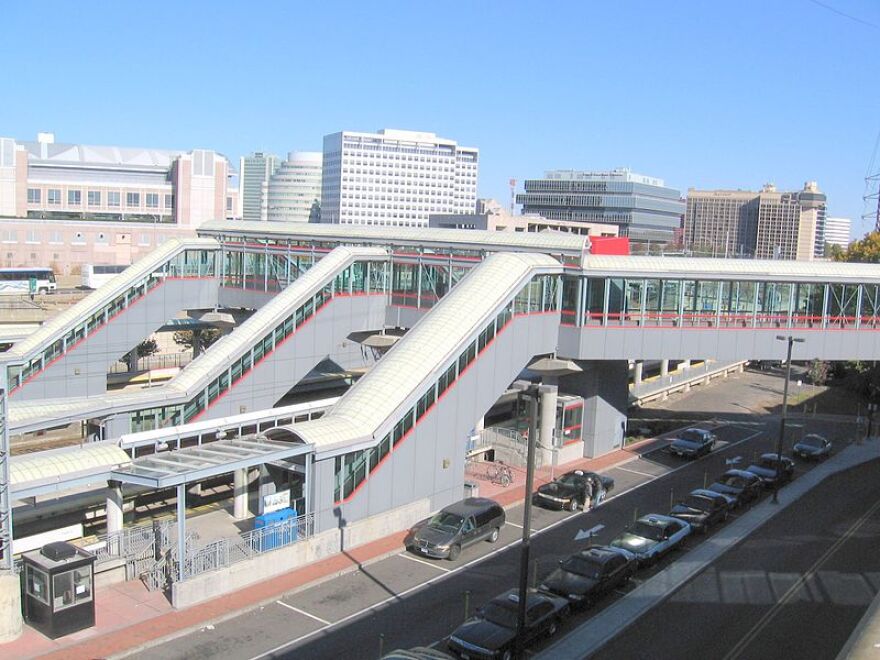Local officials complained that the authority might trump local land use law with little municipal representation.
Lawmakers are planning changes to a controversial proposal from Governor Dannel Malloy that would enable the state to take land near transit stations.
Malloy recently put forward legislation creating a Transit Corridor Development Authority. The agency would be able to pursue transit-oriented development at all properties within a half-mile radius of the state’s bus or train stations. It would have the power of eminent domain, and the ability to issue bonds.
Local officials complained that the authority had little municipal representation, and expressed concern about whether it would trump local zoning and land use regulations.
The original legislation doesn’t require the eleven-member, appointed TCDA to gain the approval of locally-elected officials. Instead, it notes the following:
…the chief elected official of each municipality in which an authority development project is planned shall serve as an ad hoc, nonvoting member of the board for matters affecting such project.
Democratic Sen. Cathy Osten of Sprague, who co-chairs the Planning and Development Committee, said legislators are working on allowing for more local control in the draft bill. Legislators will also eliminate an initial proposal permitting condemnation of property. Municipalities will not be required to cooperate with the TCDA.
“To those local officials and town residents who were concerned about various provisions in the original bill, I believe most if not all of those concerns have been addressed in our new bill,” Osten said in a statement.
State Rep. Gail Lavielle, a Republican, was critical of the bill in a statement on her website. From the site:
Many transit stations are in downtown or village areas. Those areas could change dramatically, with no consideration for the views of local residents or property owners. The changes could do a lot of good, like providing needed affordable housing or new transit parking facilities, but they could also do a lot of harm. For example, the TCDA could demolish a beloved local merchant’s shop to replace it with housing or offices, take over a parking lot that generates municipal revenues and pass on the revenues to the state, or expropriate owners of private homes. The political composition of the board also raises questions about contractor and developer selection and agreements, whatever the political party or parties making TCDA board appointments.
Jim Cameron of Darien, founder of Commuter Action Group, also offered criticism of the draft bill, saying Malloy is “trying to take your land, or at least control… the land around your local train or bus station.” From his letter to the editor at Darien Patch:
“Transit oriented development” makes sense and should be encouraged. We all need to promote housing and commercial growth focusing on our train and bus stations. But this is a local issue, not a state right.
The changes to the bill, announced Friday, are listed below:
- TCDA’s condemnation authority has been removed from the bill.
- Deletes language requiring municipalities to cooperate with TCDA.
- The host town’s chief elected official remains an ex officio member of the TCDA board for matters pertaining to the development in his or her community, and has a vote.
- Language is added that clarifies that municipal zoning, subdivision, or wetland regulations apply for developments on private or municipal land, just as under current law.
- The “host” town and TCDA will have to enter into a memorandum of agreement to delineate the parameters of the development district -- so if a town doesn’t want TCDA development projects within its boundaries, it needn’t sign an agreement.
- The executive director of the host Regional Planning Organization (RPO) would be a non-voting, ex officio member.
- TCDA will be required to consider written statements submitted by the host RPO.
A spokesman said Malloy’s idea was to encourage transit-oriented development and make sure it’s coordinate with a statewide plan. Democratic Senate Majority Leader Bob Duff of Norwalk, who helped to introduce the legislation, said it’s critical that development projects be subject to local oversight.
The bill is expected to be voted upon this week in the Planning and Development Committee.
This report includes information from The Associated Press.

